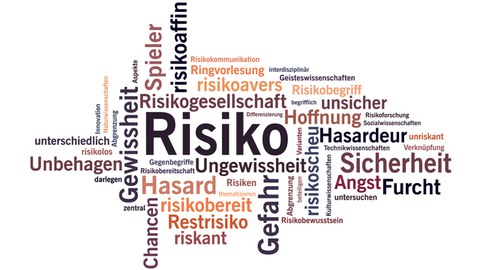Risk Communication and Narratives of Risk
Table of contents
International Summer School 2016
October 2016
The perception of risks has intensified considerably in recent years. This applies not least to the assessment of environmental risks, food and nutrition risks, financial risks and security risks. These risks are increasingly becoming threatening scenarios in a complex world of uncertainties. This world is also characterized by the fact that risks are perceived more rarely as opportunities, but rather as threats.
On one hand, the consolidation of risk-taking leads to an intensified demand for scholarly expertise. On the other hand, the credibility of such expertise is being increasingly questioned because in a world perceived as dangerous, the mistrust of any kind of expert statements becomes ubiquitous. Experts are increasingly regarded as part of a privileged elite- often encountered with suspicion. The media revolution of recent years, with its explosive growth of information and communication, where expert knowledge and lay assessments are hardly distinguishable from each other, has considerably strengthened this impression.
Risk communication has, therefore, become a central requirement, but has also become a fundamental problem of scholarship. In addition, risk communication increases risk awareness. The more risks are verbalized, the more real and threatening they appear. This phenomenon depends not least on the fact that the semantics of risk and narratives of risk play a significant role in the communication of risk transformations. If risk appears semantically as a threat and no longer as an opportunity, then the perception of risks is considerably heightened. However, it is by no means clear whether such risk assumptions involve actual risks or only those that are merely "felt" risks. Risk narratives in turn, including disaster narratives as well as rescue narratives, often represent risks in the mode of end-time scenarios, conspiracy theories, or heroic rescue tales.
How expert knowledge and risk communication can be better communicated with one another, how the semantics of risk and risk are analyzed and taken into account, were thus central questions of the Summer School "Risk Communication and Risk Narrative".
The Dresden University of Technology as a location for risk research in a variety of disciplines therefore invited an intensive exchange on the topic of group-specific perspectives and methods . The specific problems of risk communication are particularly suitable for scientific cooperation beyond the boundaries of the so-called 'two cultures': humanities and sciences.
Involved Disciplines: literary studies, media and film studies, environmental sciences, food chemistry, economics, political science, linguistics.

